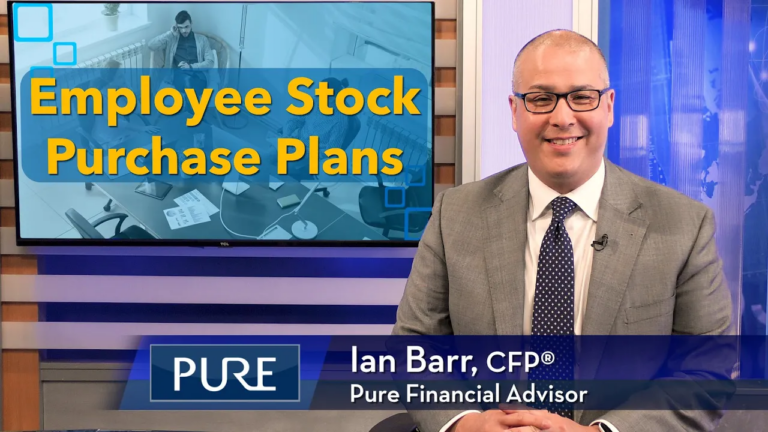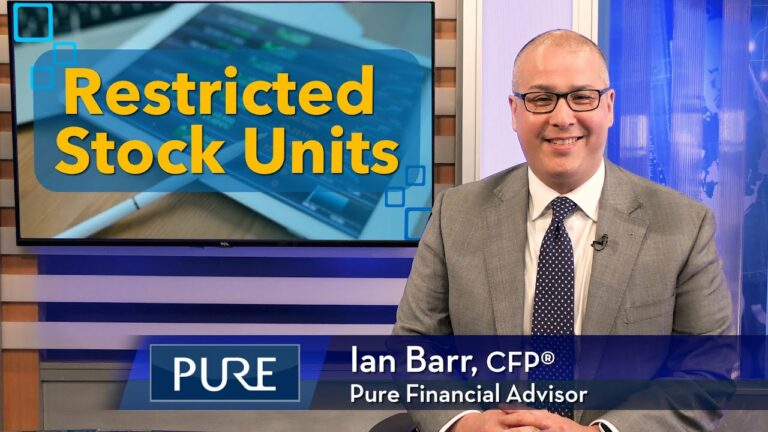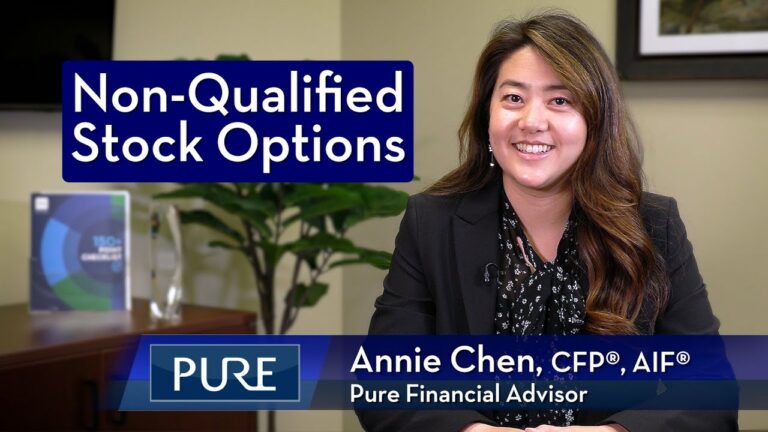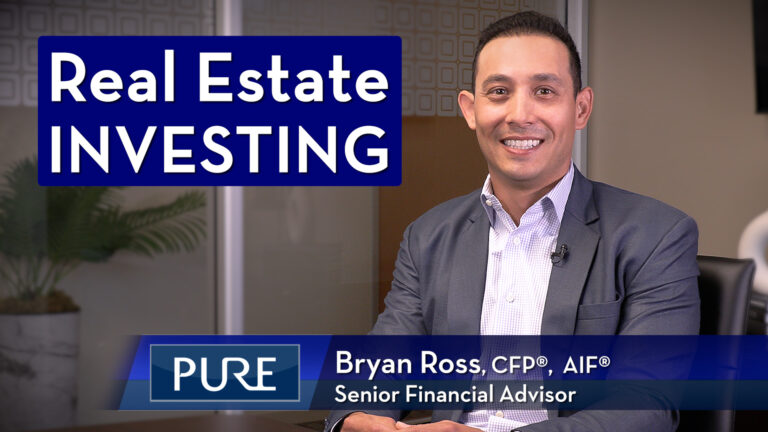With the holiday season just around the corner, it’s no surprise that many of us will turn to the internet for our shopping. While online shopping offers more convenience and variety of choices, it also exposes us to the risk of cyberattacks and potential data breaches. Pure’s Financial Planner, Jeff Brecht, CFP®, AIF®, reviews 10 tips to ensure a more secure online shopping experience.
- Stick to Trusted Sites
- Examine the URL
- Research Beyond the First Page of Search Results
- Restrict App Access to Personal Information
- Use Credit Cards or Payment Services
- Pause Before you Click
- Privacy Policies and Sharing
- Avoid Public Wi-Fi Networks
- Updating your Software
- Use Strong Passwords
FREE GUIDE | Wealth Busters to Avoid Guide
Transcript
Online shopping is a convenient way to purchase goods and services, but it also comes with the risk of scams. Here are some tips to help you avoid getting scammed when shopping online.
Stick to Trusted Sites
Shopping on well-known websites like Amazon, Best Buy, or Walmart can help you keep your most valuable data secure. In the event that a major data breach does occur, well-known companies are publicly accountable in a way that little-known shops might not be.
Examine the URL
When you’re examining the URL, also known as the address bar, there’s an important difference to look out for: If the URL starts with “https” instead of just “http”, it means the site owner has taken some steps to safeguard any information you eventually enter on the site.
Research Beyond the First Page of Search Results
Scammers can create fake websites that look like legitimate ones. So, it’s important to research beyond the first page of search results and check reviews and ratings from other customers.
Restrict App Access to Personal Info
Everyone’s addicted to apps and for good reason! They make everything more convenient, including stealing your private information. Only download shopping apps from a reliable source like the Apple App Store or Google Play. Pay attention to the permissions that they ask for. If you see something that doesn’t make sense, like access to your contacts, make sure you don’t allow the app access it. Checking out the comments and reviews of an app before downloading is another way to identify suspicious activity.
Use Credit Cards or Payment Services
When shopping online it’s best to stick to credit cards or payment services like Paypal. Because debit cards are linked to your bank account, you’re at a much higher risk if someone is able to hack your information. Credit cards offer more protection and less liability if a card number gets stolen. This is one time when it pays to put it on plastic.
Pause Before you Click
Beware of links to deals that are too good to be true on social networking sites. Look out for unbelievable offers, holiday gifts or bonuses. If you’re really tempted by an offer, do some research or find out if anyone else has tried to take advantage of the deal before clicking.
Privacy Policies and Sharing
Giving out too much personal information. Most websites you visit or shop on will ask you for information to complete your purchase or start a wish list. Give them only the information they require you to provide. If it’s a complete address or a phone number is optional, then skip those fields. The more information you put out there, the more accessible you are to a bad guy. And before committing your information to a site, take the time to read their privacy policy and find out exactly where and how your information will be shared.
Avoid Public Wi-Fi Networks
We all like to shop and enjoy a good cup of Joe, but maybe don’t use their Wi-Fi network because public networks are not secure and can be easily hacked by cybercriminals who can steal your personal information.
Updating your Software
It is one of the easiest things you can do to protect your information, but many people put it off. Software updates are often released to help introduce new security and fight new attacks that are being developed constantly. It may seem inconvenient, especially because you have to wait for your computer or your smartphone to update and maybe restart, but the protective benefits are worth it. Next time you see an alert to update your software, do it.
Use Strong Passwords
Use strong passwords with numbers, characters and maybe even a phrase that’s difficult for hackers to guess.
By following these tips, you can protect yourself from online shopping scams and enjoy a safe and secure shopping experience.
Subscribe to our YouTube channel.
IMPORTANT DISCLOSURES:
• Investment Advisory and Financial Planning Services are offered through Pure Financial Advisors, LLC, a Registered Investment Advisor.
• Pure Financial Advisors LLC does not offer tax or legal advice. Consult with your tax advisor or attorney regarding specific situations.
• Opinions expressed are subject to change without notice and are not intended as investment advice or to predict future performance.
• Investing involves risk including the potential loss of principal. No investment strategy can guarantee a profit or protect against loss in periods of declining values.
• All information is believed to be from reliable sources; however, we make no representation as to its completeness or accuracy.
• Intended for educational purposes only and are not intended as individualized advice or a guarantee that you will achieve a desired result. Before implementing any strategies discussed you should consult your tax and financial advisors.
CFP® – The CERTIFIED FINANCIAL PLANNER™ certification is by the Certified Financial Planner Board of Standards, Inc. To attain the right to use the CFP® designation, an individual must satisfactorily fulfill education, experience and ethics requirements as well as pass a comprehensive exam. Thirty hours of continuing education is required every two years to maintain the designation.
AIF® – Accredited Investment Fiduciary designation is administered by the Center for Fiduciary Studies fi360. To receive the AIF Designation, an individual must meet prerequisite criteria, complete a training program, and pass a comprehensive examination. Six hours of continuing education is required annually to maintain the designation.












